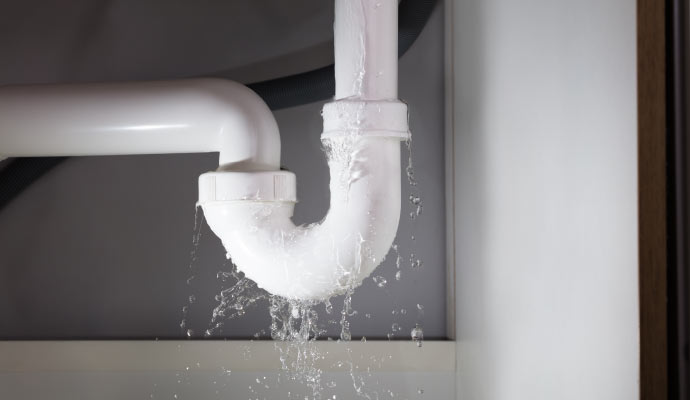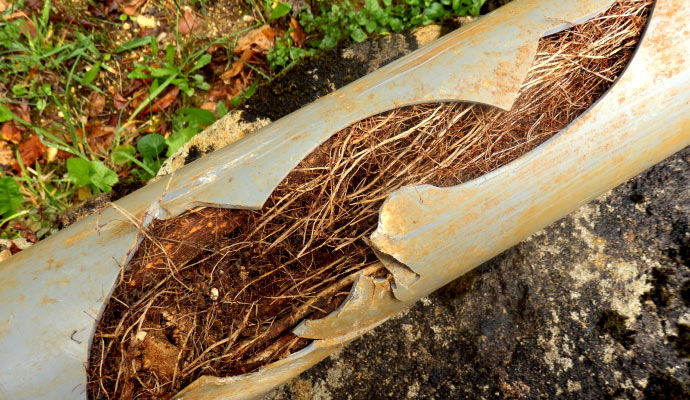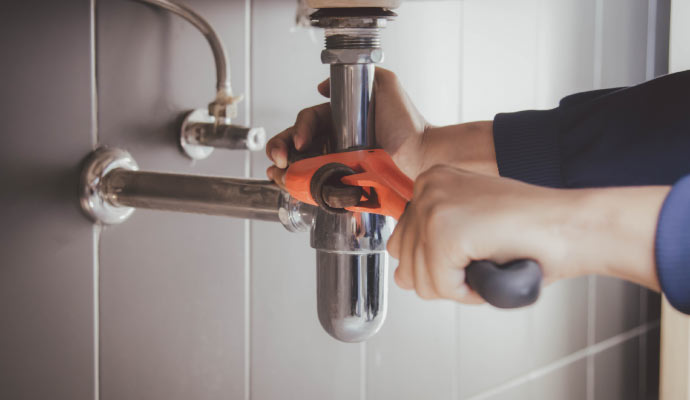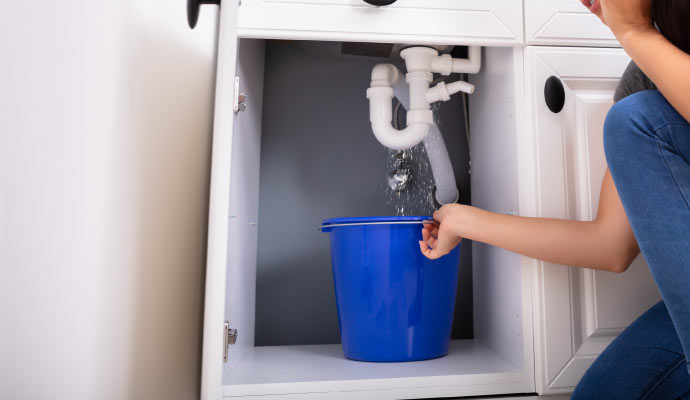
The Most Common Plumbing Overflow Issues
Water where it doesn’t belong on your property can cause all sorts of headaches. If the issue stems from your plumbing or water management system, it could lead to serious problems—damage to your home’s structure, and appliances, and making daily life downright inconvenient.
Taking preventive steps is the key to reducing both the hassle and the damage. That’s why it’s important to understand common plumbing overflow issues. In this guide, we’ll walk you through the basics. Let’s dive in! If you need more help, don’t hesitate to reach out to nearby experts for help.

Different Plumbing Overflow Problems
Plumbing overflows can cause serious damage to homes and businesses. Clogged drains are a common issue, often caused by hair, food scraps, or soap buildup. Old or damaged pipes can crack and leak, leading to overflows. Sewer backups can push wastewater into your home when the main sewer line is blocked. Toilets can overflow from too much paper or foreign objects. Broken fixtures, like faucets or showerheads, can also cause uncontrolled water flow and even damage to the structural parts.
Find Your Local “Restoration Renegades” Today

What Causes Plumbing Overflow?
- Hair, food scraps, soap residue, and other debris often build up in drains, slowing or completely blocking water flow.
- Old or damaged pipes can develop cracks or leaks, which may lead to water escaping and causing overflows.
- When the main sewer line is blocked, it can force wastewater back into your home, creating a messy and hazardous situation.
- Flushing too much toilet paper or foreign items like wipes or small objects can clog toilets, leading to overflows.
- Damaged faucets, showerheads, or other plumbing fixtures can malfunction, resulting in continuous and uncontrolled water flow.

How To Prevent Plumbing Overflow?
- Regular Drain Cleaning: Use a plunger or drain cleaner to clear out hair, food scraps, and other debris that can clog your drains.
- Avoid Flushing Inedible Items: Stick to flushing only human waste. Don’t flush wipes, paper towels, or other non-flushable items.
- Mindful Garbage Disposal Use: Be careful with your garbage disposal. Avoid putting fibrous foods like celery or starchy items like rice and grease.
- Inspect Pipes Regularly: Look for leaks, cracks, or other signs of damage in your pipes. Fix problems quickly to prevent them from getting worse.
- Professional Plumbing Maintenance: Have a licensed plumber perform regular inspections and maintenance to catch issues before they become major problems.
- Overflow Protection Devices: Install overflow protection devices to prevent flooding, especially if you live in an area prone to water issues.
Why Take Professional Help?

- Professional plumbers possess the skills and experience needed to quickly diagnose and efficiently resolve even the most complex plumbing issues.
- They utilize specialized tools and equipment that are essential for accurate troubleshooting and effective repairs.
- Professionals can detect potential problems and recommend preventative steps to help you avoid future overflows and costly repairs.
- They focus on fixing plumbing issues like plumbing leaks in such a way that they don’t recur, saving you time and hassle.
- Licensed plumbers are often insured, providing you with protection against damages and reducing liability during the repair or restoration process.
- Their expertise allows them to address plumbing issues promptly, minimizing interruptions to your routine and restoring normalcy.
- DIY plumbing repairs can sometimes backfire, worsening the issue and leading to higher repair costs. Hiring a professional helps prevent additional damage and ensures quality results.
When to Call For Expert Service?
- Severe Water Damage: If an overflow has caused significant water damage to your property.
- Persistent Clogs: Failure in multiple attempts to clear a clog.
- Sewer Backup: Sewage is backing up into your home.
- Frequent Overflows: Plumbing is constantly being overflowed.
- Complex Plumbing Problems: For complex issues, like a broken pipe or malfunctioning sewer line, it’s best to rely on the expertise of a professional plumber.
A professional plumber can efficiently resolve these problems and prevent further damage, including:
Contact the Best Service Provider through Restoration Renegades
Knowing about local experts can bring you closer to solving your current plumbing issue. Restoration Renegades simplifies this process for you. Our directory allows you to choose from top-rated, well-known service providers in your area. Simply enter your zip code to view a list of options. You can contact us online. For that fill out the form.



